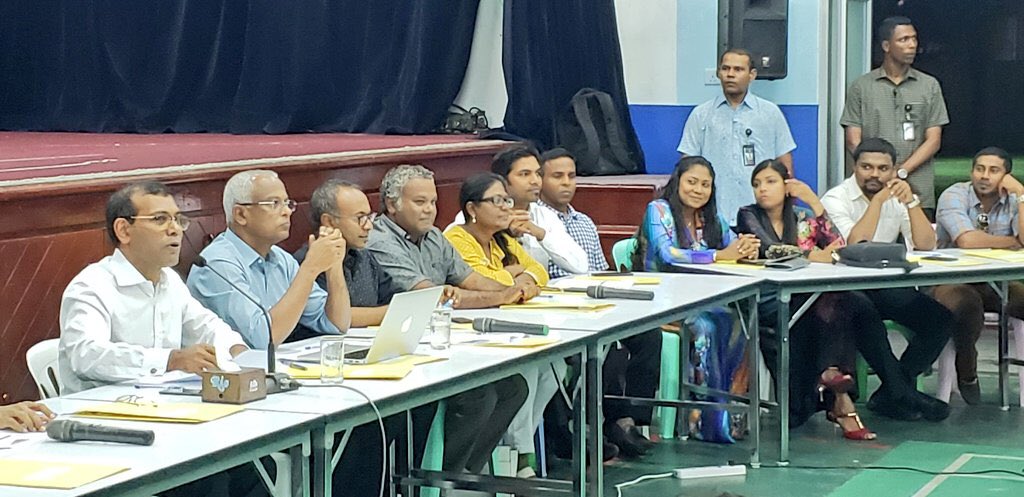MDP proposes sweeping changes for judicial reform
The MDP proposes a dramatic reduction in the powers of the Supreme Court.

27 Jan 2019, 09:00
A dramatic reduction of the Supreme Court’s powers is among sweeping changes proposed by the Maldivian Democratic Party to reform the judiciary.
The proposals were discussed at a campaign workshop held at the Brightway International School on Saturday to hammer out policies for the April 6 parliamentary elections. Former president Mohamed Nasheed, who is among the party’s candidates, chaired the workshop and President Ibrahim Mohamed Solih attended the last session.
Pursuing judicial reform was a key campaign pledge of President Solih with politicisation, inadequate qualification of judges, and lack of conformity to international fair trial standards among longstanding concerns.
According to a judicial reform policy paper presented by Hisaan Hussain, the MDP’s legal director and candidate for the Thulhaadhoo constituency, legislation would be proposed to restrict the Supreme Court’s authority.
Become a member
Get full access to our archive and personalise your experience.
Already a member?
Discussion
No comments yet. Be the first to share your thoughts!
No comments yet. Be the first to join the conversation!
Join the Conversation
Sign in to share your thoughts under an alias and take part in the discussion. Independent journalism thrives on open, respectful debate — your voice matters.




